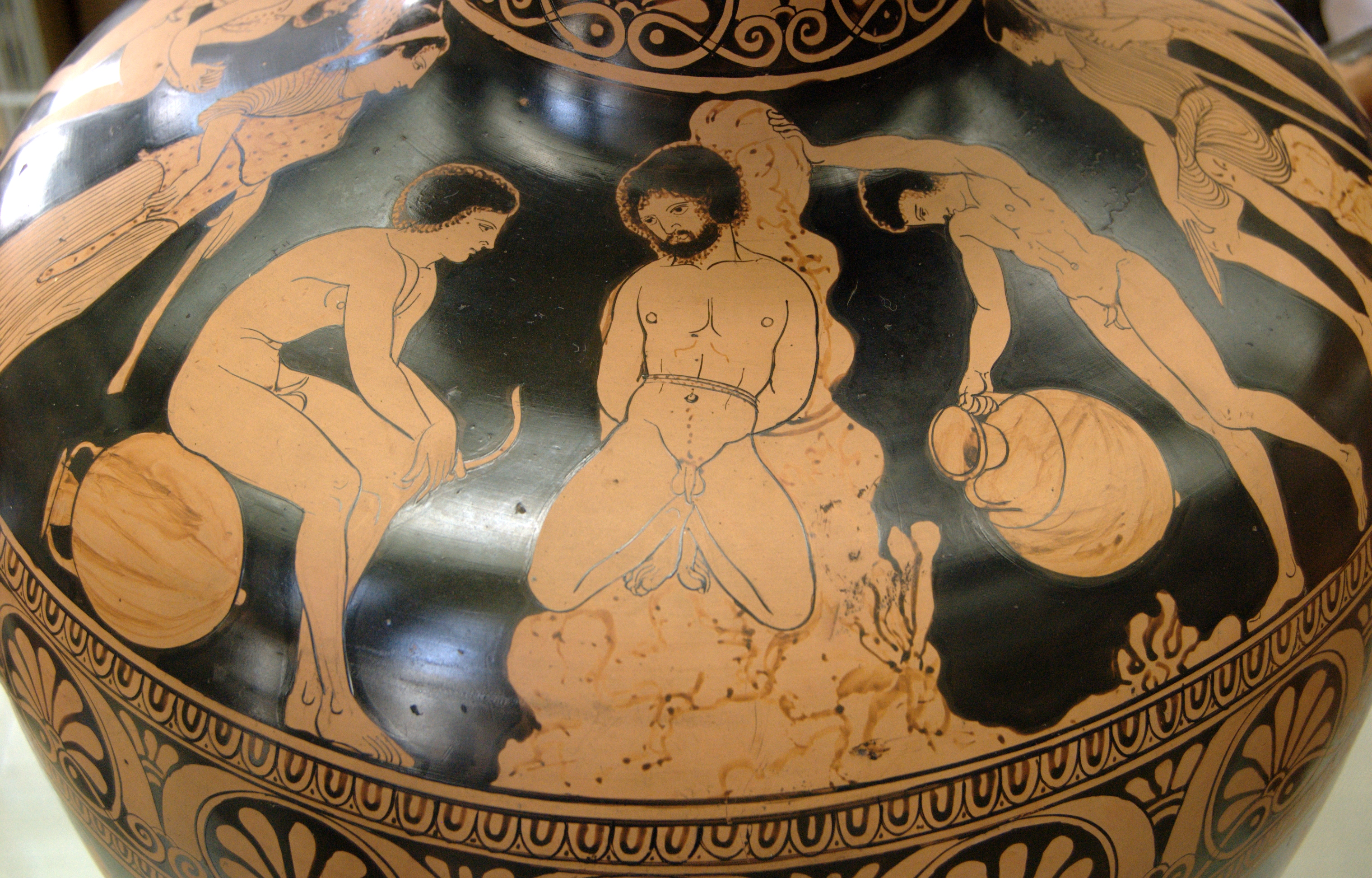Amycos Satyrykos on:
[Wikipedia]
[Google]
[Amazon]
 The Amycos Satyrykos is a fragmentary
The Amycos Satyrykos is a fragmentary
 The Amycos Satyrykos is a fragmentary
The Amycos Satyrykos is a fragmentary satyr play
The satyr play is a form of Attic theatre performance related to both comedy and tragedy. It preserves theatrical elements of dialogue, actors speaking verse, a chorus that dances and sings, masks and costumes. Its relationship to tragedy is stro ...
by the fifth-century BCE Athenian
Athens ( ; el, Αθήνα, Athína ; grc, Ἀθῆναι, Athênai (pl.) ) is both the capital and largest city of Greece. With a population close to four million, it is also the seventh largest city in the European Union. Athens dominates ...
dramatist Sophocles
Sophocles (; grc, Σοφοκλῆς, , Sophoklễs; 497/6 – winter 406/5 BC)Sommerstein (2002), p. 41. is one of three ancient Greek tragedians, at least one of whose plays has survived in full. His first plays were written later than, or co ...
.
Content
This satyr play almost certainly told the story of theArgonauts
The Argonauts (; Ancient Greek: ) were a band of heroes in Greek mythology, who in the years before the Trojan War (around 1300 BC) accompanied Jason to Colchis in his quest to find the Golden Fleece. Their name comes from their ship, '' Argo'', ...
and their encounter with Amycus, an inhospitable king in Bithynia
Bithynia (; Koine Greek: , ''Bithynía'') was an ancient region, kingdom and Roman province in the northwest of Asia Minor (present-day Turkey), adjoining the Sea of Marmara, the Bosporus, and the Black Sea. It bordered Mysia to the southwest, Pa ...
, who would challenge travellers to a boxing match before allowing them to draw water for their ships, and invariably killed his opponents. However, upon landing, Polydeuces promptly challenged and defeated the king, and depending on the author, the Argonaut then either killed Amycos or made him swear an oath on his life that he would no longer “maltreat strangers”. Jebb believes another ending, which was related by Periander
Periander (; el, Περίανδρος; died c. 585 BC) was the Second Tyrant of the Cypselid dynasty that ruled over ancient Corinth. Periander's rule brought about a prosperous time in Corinth's history, as his administrative skill made Corinth o ...
, wherein Amycos was put in chains, would have been more suitable for a satyr play; unfortunately, it is impossible to say for certain which of these endings was used by Sophocles Jebb p. 71
Date
Unfortunately, no date more precise than the 5th century BCE can as yet be reliably ascribed to the writing or production of the play.Extant Sources
Fragments of the ''Amycos'' by Sophocles are only found inAthenaeus
Athenaeus of Naucratis (; grc, Ἀθήναιος ὁ Nαυκρατίτης or Nαυκράτιος, ''Athēnaios Naukratitēs'' or ''Naukratios''; la, Athenaeus Naucratita) was a Greek rhetorician and grammarian, flourishing about the end of th ...
, '' Deipnosophists'' 9, 400B
References
* Jebb, Richard C. et al. (2010) ''The Fragments of Sophocles, Vol. 1'' Cambridge University Press * Lloyd-Jones, Hugh (1996) ''Sophocles Fragments, Vol. 3'' Loeb Classical library * Apollonius of Rhodes 2, 1-97 * Theocritus 22, 27-134 * Schol. Apollonius Rhodos 2. 98 {{Authority control Plays by Sophocles Satyr plays Lost plays